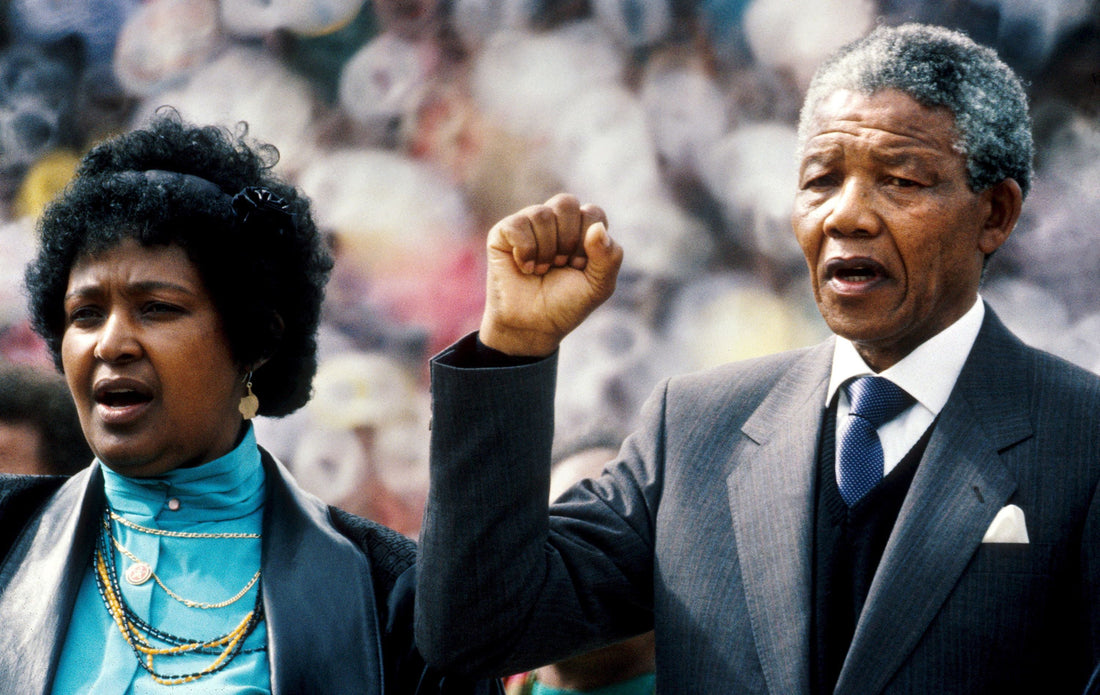Mandela's Defiance: How Apartheid's End Changed South Africa
Dr. Lena PetrovaNelson Mandela's fight against apartheid reshaped South Africa, inspiring global movements for equality and justice.

Nelson Mandela's unwavering stance against apartheid reshaped South Africa, dismantling decades of racial segregation and oppression. His journey from prisoner to president symbolizes resilience and the pursuit of equality, inspiring generations worldwide.
The struggle against apartheid highlights the power of peaceful resistance and the importance of fighting for justice, even in the face of immense adversity. Mandela's legacy continues to influence global movements for human rights and social change, reminding us that a better world is possible through courage and determination.
Highlights
- Mandela's imprisonment for 27 years became a symbol of the anti-apartheid movement, galvanizing international support.
- His release in 1990 marked a turning point, leading to negotiations that dismantled apartheid and established a multiracial democracy.
- Mandela's emphasis on reconciliation fostered healing and unity in a nation deeply divided by racial segregation.
Read More: Xbox to be like Office: Everywhere, says Nadella
Top 5 Key Insights
• Unwavering Resolve: Nelson Mandela's commitment to justice never wavered, even during his long imprisonment. His resilience inspired others to continue the fight against apartheid, both within South Africa and internationally. This steadfastness proved crucial in maintaining momentum for change.
• Strategic Negotiation: Mandela's willingness to negotiate with the apartheid government, once released, demonstrated pragmatism. These negotiations paved the way for a peaceful transition to democracy, preventing further bloodshed and instability. His ability to find common ground was essential.
• Symbol of Hope: Mandela became an international symbol of hope and freedom. His image and message resonated globally, drawing attention to the injustices of apartheid. This global awareness put pressure on the South African government to reform.
• Reconciliation as a Foundation: Mandela prioritized reconciliation over retribution, establishing the Truth and Reconciliation Commission. This approach allowed South Africa to confront its painful past while building a more unified future. It was a critical step in healing the nation.
• Lasting Legacy: Mandela's presidency laid the foundation for a more equitable South Africa. His focus on dismantling apartheid's structures and promoting equality continues to shape the nation's trajectory. His legacy serves as a beacon for social justice movements worldwide.
Read More: Jessica Alba's Net Worth: Acting, Business & Real Estate
Expert Insights
European Parliament President Martin Schulz: "South Africa today loses its father, the world loses a hero. I pay tribute to one of the greatest humans of our time. Nelson Mandela dies today, but his legacy will last forever."
Read More: AI Search Engines Favor Less Popular Sources: Study
Wrap Up
Mandela's story underscores the transformative power of individual conviction and collective action. His leadership in dismantling apartheid and fostering reconciliation provides a blueprint for overcoming injustice and building a more inclusive society.
The challenges he faced and the triumphs he achieved serve as a reminder that even the most entrenched systems of oppression can be overcome through courage, perseverance, and a commitment to human dignity. Mandela's legacy will continue to inspire generations to strive for a world where equality and justice prevail.
Read More: Trump's $80B Nuclear Reactor Plan Fuels AI Ambitions
Author
Dr. Lena Petrova - A political scientist and geopolitical analyst based in Berlin, specializing in international relations and governance. Her contributions to Enlightnr offer deep insights into how political dynamics shape the world.
More to Explore
- Choosing a selection results in a full page refresh.
- Opens in a new window.




